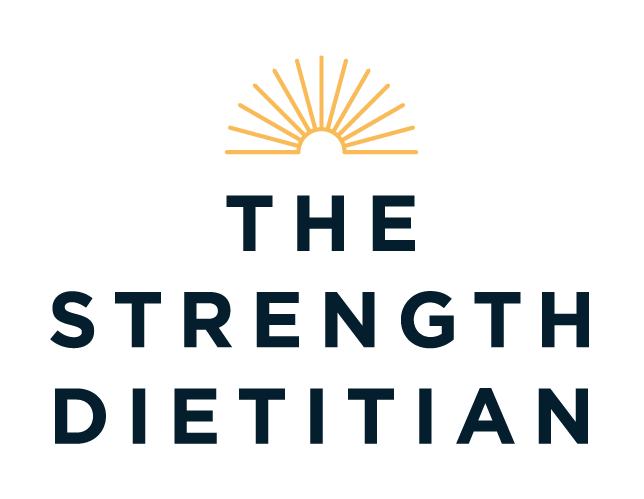5 Surprising Dietitian Hacks To Help You Lose Weight Effortlessly!
1. Don’t skip the appetiser!
Starting with a low-calorie appetiser can help reduce the amount of total calories you have at a meal
The science behind this phenomenon is simple. You’re filling up on low calorie, nutrient-dense foods first before digging into the good stuff.
When given pasta with a salad, individuals ate 11% LESS calories and 23% MORE vegetables.[1]
Not a fan of salads? Including a soup as an entrée, resulted in individuals eating 20% LESS calories at a main meal (which was 100-160 calories). The best part is that it works, regardless of whether you choose pureed soups, chunky soups or vegetable broth.[2]
The secret to easy weight loss = start main meals with a soup or salad.
Adding a soup or salad to your meal can reduce the energy density of your meal. This means you can eat more food for less calories!
2. Eat a bigger breakfast.
Do you just have a coffee in the morning even though you feel hungry?
This can contribute to overeating later in the day as coffee temporarily suppresses your appetite. Once it’s appetite-suppressing effect fades a few hours late, you’re back to feelking ravenous and reaching for the first snack you can find.
This delayed hunger effect can lead to you feeling tired, lethargic and irritable later in he day. This can often lead to impulsive food choices and overeating at your next meal.
You’ve likely heard the advice toe at breakfast like a king, lunch like a prince and dinner like a pauper.
There is some merit to this saying as eating a hearty breakfast can help provide fuel the rest of your day. There’s also research showing that skewing the majority of your calorie intake to earlier in the day, may be benedicial for you circadian rhythm.
Eggs on avocado toast with cherry tomatoes. The perfect way to start the day is with a healthy breakfast. This meal has a good dose of protein, low GI carbohydrates, healthy fats and plenty of fibre!
3. Go to bed earlier
Sleeping less is linked to higher calorie intake WITHOUT any changes to how much energy you burn.
More calories in than calorie out = weight gain.
Poor sleep can cause weight due to:
Lower energy levels.
This leads us to reach for carbohydrate-rich foods in an attempt to feel more energised.More time and opportunity to eat. It’s quite common to grab something from the fridge or pantry when stay up late at night.
Increased appetite due to changes in hormones. Inadequate sleep raises your ghrelin levels *hunger hormone) and decreases your leptin (satiety hormone). These two hormones are important in regulating energy balance.
Leptin is known as the “satiety hormone” and it is released from your fat cells to send signals to your brain. It has a long-term effect on how much energy we burn and our food intake. Ongoing research has highlighted that our sleep duration impacts our leptin levels.[3] Ghrelin is a fast acting “hunger hormone” that is highest prior to a meal and lowest after eating. It signals to your body to start eating.
4. Eat according to your hunger cues, not the clock!
Whether you’re working from home or returned back to the office,
If you find yourself watching the clock until it’s lunch time, it’s a good indicator that it is time to have something to eat.
There is no shame in keeping a stash of healthy snacks in your drawer or having lunch a little earlier than your colleagues.
Some healthy work snacks include:
Carrot, celery and capsicum strips with hummus
Yoghurt
Fava Beans
High protein muesli bar
Milky coffee
Popcorn
Pea harvest snaps
Handful of nuts and seeds
5. Allow all foods - especially the delicious ones!
I used to roll my eyes at this phrase and think “as if, I’d just live on chocolate and cheese all day.”
Let me explain why allowing all foods as part of your diet works.
There is no single food that can cause weight gain or weight loss ALONE.
That means if you are trying to lose weight, as long as you stay in a calorie deficit, you WILL lose weight.
The occasional chocolate, birthday cake or fries won’t prevent you from losing weight. In fact, it can help by taking the novelty and power of these foods so that you can enjoy them and move on without guilt or stress.
By removing the psychological burden of having “off-limit foods”, you can break free from the restrict and binge cycle.
Would I recommend that you try to fit in churros and melted chocolate into your calorie deficit every day? Probably not, but I would make room for fun foods 1-2x every week.
The healthiest choice: Allowing yourself to eat your favourite foods in moderation, without guilt or stress!
References
[1] Roe, L. S., Meengs, J. S., & Rolls, B. J. (2012). Salad and satiety. The effect of timing of salad consumption on meal energy intake. Appetite, 58(1), 242–248. https://doi.org/10.1016/j.appet.2011.10.003
[2] Flood JE, Rolls BJ. Soup preloads in a variety of forms reduce meal energy intake. Appetite. 2007 Nov;49(3):626-34. doi: 10.1016/j.appet.2007.04.002. Epub 2007 Apr 14. PMID: 17574705; PMCID: PMC2128765.
[3] Karine Spiegel, Rachel Leproult, Mireille L’Hermite-Balériaux, Georges Copinschi, Plamen D. Penev, Eve Van Cauter, Leptin Levels Are Dependent on Sleep Duration: Relationships with Sympathovagal Balance, Carbohydrate Regulation, Cortisol, and Thyrotropin, The Journal of Clinical Endocrinology & Metabolism, Volume 89, Issue 11, 1 November 2004, Pages 5762–5771, https://doi.org/10.1210/jc.2004-1003






